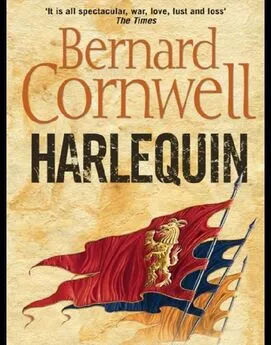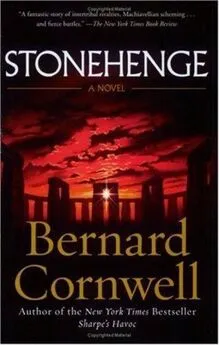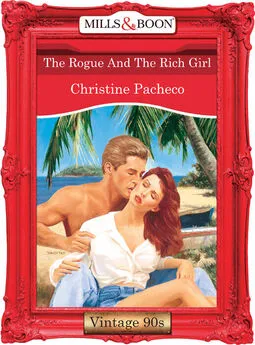Bernard Cornwell - The Grail Quest 2 - Vagabond
- Название:The Grail Quest 2 - Vagabond
- Автор:
- Жанр:
- Издательство:неизвестно
- Год:неизвестен
- ISBN:нет данных
- Рейтинг:
- Избранное:Добавить в избранное
-
Отзывы:
-
Ваша оценка:
Bernard Cornwell - The Grail Quest 2 - Vagabond краткое содержание
In Harlequin, Thomas of Hookton travelled to France as an archer and there discovered a shadowy destiny, which linked him to a family of heretical French lords who sought Christendom′s greatest relic.
Having survived the battle of Crécy, Thomas is sent back to England, charged with finding the Holy Grail. But Thomas is an archer and when a chance comes to fight against an army invading northern England he jumps at it. Plunged into the carnage of Neville′s Cross, he is oblivious to other enemies who want to destroy him. He discovers too late that he is not the only person pursuing the grail, and that his rivals will do anything to thwart him.
After hunting and wounding him, Thomas′s enemies turn him into a fugitive. Fleeing England, he travels to Normandy, determined to rescue Will Skeat, his old commander from Harlequin. Finally Thomas leads his enemies back to Brittany, where he goes to discover an old love and where his pursuers at last trap their reluctant pilgrim.
Vagabond is a vivid and realistic portrait of England at a time when the archer was king of Europe′s battlefields.
The Grail Quest 2 - Vagabond - читать онлайн бесплатно ознакомительный отрывок
Интервал:
Закладка:
'I can walk faster,' she said, 'and you can ignore a battle!' Father Hobbe, leading the horse, understood the tone even though he did not comprehend the words. He sighed, thus earning himself a savage look from Eleanor. 'You do not need to fight!' she went on.
'I'm an archer,' Thomas said stubbornly, 'and there's an enemy up there.'
'Your King sent you to find the Grail!' Eleanor insisted. 'Not to die! Not to leave me alone! Me and a baby!' She had stopped now, hands clutching her belly and with tears in her eyes. 'I am to be alone here? In England?'
'I won't die here,' Thomas said scathingly.
'You know that?' Eleanor was even more scathing. 'God spoke to you, perhaps? You know what other men do not? You know the day of your dying?'
Thomas was taken aback by the outburst. Eleanor was a strong girl, not given to tantrums, but she was distraught and weeping now. 'Those men,' Thomas said, 'the Scarecrow and Beggar, they won't touch you. I'll be here.'
'It isn't them!' Eleanor wailed. 'I had a dream last night. A dream.'
Thomas put his hands on her shoulders. His hands were huge and strengthened by hauling on the hempen string of the big bow. 'I dreamed of the Grail last night,' he said, knowing that was not quite true. He had not dreamed of the Grail, rather he had woken to a vision which had turned out to be a deception, but he could not tell Eleanor that. 'It was golden and beautiful,' he said, 'like a cup of fire.'
'In my dream,' Eleanor said, gazing up at him, 'you were dead and your body was all black and swollen.' 'What is she saying?' Father Hobbe asked.
'She had a bad dream,' Thomas said in English, 'a nightmare.'
'The devil sends us nightmares,' the priest asserted. 'It is well known. Tell her that.'
Thomas translated that for her, then he stroked a wisp of golden hair away from her forehead and tucked it under her knitted cap. He loved her face, so earnest and narrow, so cat-like, but with big eyes and an expressive mouth. 'It was just a nightmare,' he reassured her, ' un cauchemar.'
'The Scarecrow,' Eleanor said with a shudder, 'he is the cauchemar.'
Thomas drew her into an embrace. 'He won't come near you,' he promised her. He could hear a distant chanting, but nothing like the monks' solemn prayers. This was a jeering, insistent chant, heavy as the drum-beat that gave it rhythm. He could not hear the words, but he did not need to. 'The enemy,' he said to Eleanor, 'are waiting for us.'
'They are not my enemy,' she said fiercely.
'If they get into Durham,' Thomas retorted, 'then they will not know that. They will take you anyway.'
'Everyone hates the English. Do you know that? The French hate you, the Bretons hate you, the Scots hate you, every man in Christendom hates you! And why? Because you love fighting! You do! Everyone knows that about the English. And you? You have no need to fight today, it is not your quarrel, but you can't wait to be there, to kill again!'
Thomas did not know what to say, for there was truth in what Eleanor had said. He shrugged and picked up his heavy bow. 'I fight for my King, and there's an army of enemies on the hill here. They outnumber us. Do you know what will happen if they get into Durham?'
'I know,' Eleanor said firmly, and she did know for she had been in Caen when the English archers, dis-obeying their King, had swarmed across the bridge and laid the town waste.
'If we don't fight them and stop them here,' Thomas said, 'then their horsemen will hunt us all down. One after the other.'
'You said you would marry me,' Eleanor declared, crying again. 'I don't want my baby to be fatherless, I don't want it to be like me.' She meant illegitimate.
'I will marry you, I promise. When the battle is done
we shall be married in Durham. In the cathedral, yes?' He smiled at her. 'We can be married in the cathedral.'
Eleanor was pleased with the promise, but too furious to show her pleasure. 'We should go to the cathedral now,' she snapped. 'We would be safe there. We should pray at the high altar.'
'You can go to the city,' Thomas said. 'Let me fight my King's enemies and you go to the city, you and Father Hobbe, and you find the old monk and you can both talk to him, and afterwards you can go to the cathedral and wait for me there.' He unstrapped one of the big sacks on the mare's back and took out his haubergeon, which he hauled over his head. The leather lining felt stiff and cold, and smelt of mould. He forced his hands down the sleeves, then strapped the sword belt about his waist and hung the weapon on his right side. 'Go to the city,' he told Eleanor, 'and talk to the monk.'
Eleanor was crying. 'You are going to die,' she said, 'I dreamed it.'
'I can't go to the city,' Father Hobbe protested.
'You're a priest,' Thomas barked, 'not a soldier! Take Eleanor to Durham. Find Brother Collimore and talk to him.' The prior had insisted that Thomas wait and suddenly it seemed very sensible to send Father Hobbe to talk to the old monk before the prior poisoned his memories. 'Both of you,' Thomas insisted, 'talk to Brother Collimore. You know what to ask him. And I shall see you there this evening, in the cathedral.' He took his sallet, with its broad rim to deflect the down-ward stroke of a blade, and tied it onto his head. He was angry with Eleanor because he sensed she was right. The imminent battle was not his concern except that fighting was his trade and England his country. 'I will not die,' he told Eleanor with an obstinate irrationality, 'and you will see me tonight.' He tossed the horse's reins to Father Hobbe. 'Keep Eleanor safe,' he told the priest. 'The Scarecrow won't risk anything inside the monastery or in the cathedral.'
He wanted to kiss Eleanor goodbye, but she was angry with him and he was angry with her and so he took his bow and his arrow bag and walked away. She said nothing for, like Thomas, she was too proud to back away from the quarrel. Besides, she knew she was right. This clash with the Scots was not Thomas's fight, whereas the Grail was his duty. Father Hobbe, caught between their obstinacy, walked in silence, but did note that Eleanor turned more than once, evidently hoping to catch Thomas looking back, but all she saw was her lover climbing the path with the great bow across his shoulder. It was a huge bow, taller than most men and as thick about its belly_ as an archer's wrist. It was made from yew: Thomas was fairly sure it was Italian yew though he could never be certain because the raw stave had drifted ashore from a wrecked ship. He had shaped the stave, leaving the centre thick, and he had steamed the tips to curve them against the way the bow would bend when it was drawn. He had painted the bow black, using svax, oil and soot, then tipped the two ends of the stave with pieces of pocked antler horn to hold the cord. The stave had been cut so that at the belly of the bow, where it faced Thomas when he drew the hempen string, there was hard heartwood which was compressed when the arrow was hauled back while the outer belly was springy sapwood and when he released the cord the heartwood snapped out of its compression and the sapwood pulled it back into shape and between them they sent the arrow hissing with savage force. The belly of the bow, where his left hand gripped the yew, was whipped with hemp and above the hemp, which had been stiffened with hoof glue, he had nailed a scrap of silver cut from a crushed Mass vessel that his father had used in Hookton church, and the piece of silver cup showed the yale with the Grail in its clawed grip. The yale came from Thomas's family's coat of arms, though he had not known that when he grew up for his father had never told him the tale. He had never told Thomas he was a Vexille from a family that had been lords of the Cathar heretics, a family that had been burned out of their home in southern France and which had fled to hide themselves in the darkest corners of Christendom. Thomas knew little of the Cathar heresy. He knew his bow and he knew how to select an arrow of slender ash or birch or hornbeam, and he knew how to fledge the shaft with goose feathers and how to tip it with steel. He knew all that, yet he did not know how to drive that arrow through shield, mail and flesh. That was instinct, something he had practised since child-hood; practised till his string fingers were bleeding; practised until he no longer thought when he drew the string back to his ear; practised until, like all archers, he was broad across the chest and hugely muscled in his arms. He did not need to know how to use a bow, it was just an instinct like breathing or waking or fighting. He turned when he reached a stand of hornbeams that guarded the upper path like a rampart. Eleanor was walking stubbornly away and Thomas had an urge to shout to her, but knew she was already too far off and would not hear him. He had quarrelled with her before: men and women, it seemed to Thomas, spent half their lives fighting and half loving and the intensity of the first fed the passion of the second, and he almost smiled for he recognized Eleanor's stubbornness and he even liked it; and then he turned and walked through the trampled drifts of fallen hornbeam leaves along the path between stone-walled pastures where hundreds of saddled stallions were grazing. These were the war-horses of the English knights and men-at-arms and their presence in the pastures told Thomas that the English expected the Scots to attack because a knight was far better able to defend himself on foot. The horses were kept saddled so that the mailed men-atarms could either retreat swiftly or else mount up and pursue a beaten enemy. Thomas could still not see the Scottish army, but he could hear their chanting, which was given force by the hellish beat of the big drums. The sound was making some of the pastured stallions nervous and three of them, pursued by pageboys, galloped beside the stone wall with their eves showing white. More pages were exercising destriers just behind the English line, which was divided into three battles. Each battle had a knot of horsemen at the centre of its rear rank, the mounted men being the commanders beneath their bright banners, while in front of them were four or five rows of men-at-arms carrying swords, axes, spears and shields, and ahead of the men-at-arms, and crowded thick in the spaces between the three battles, were the archers.
The Scots, two arrow shots away from the English, were on slightly higher ground and also divided into three divisions which, like the English battles, were arrayed beneath their clusters of commanders' banners. The tallest flag, the red and yellow royal standard, was in the centre. The Scottish knights and men-at-arms, like the English, were on foot, but each of their sheltrons was much larger than its opposing English battle, three or four times larger, but Thomas, tall enough to look over the English line, could see there were not many archers in the enemy ranks. Here and there along the Scottish line he could see some long bow, staves and there were a few crossbows visible among the thicket of pikes, but there were not nearly so many bowmen as were in the English array, though the English, in turn, were hugely outnumbered by the Scottish army. So the battle, if it ever started, would be between arrows and Scottish pikes and men-at-arms, and if there were not enough arrows then the ridge must become an English graveyard. Lord Outhwaite's banner of the cross and scallop shell was in the left-hand battle and Thomas crossed to it. The prior, dismounted now, was in the space between the left and centre divisions where one of his monks swung a censer and another brandished the Mass cloth on its painted pole. The prior himself was shouting, though Thomas could not tell whether he called insults at the enemy or prayers to God for the Scottish chanting was so loud. Thomas could not distinguish the enemy's words either, but the sentiment was plain enough and it was sped on its way by the massive drums. Thomas could see the huge drums now and observe the passion with which the drummers beat the great skins to make a noise as sharp as snapping bone. Loud, rhythmic and reverberating, an assault of ear-piercing thunder, and in front of the drums at the centre of the enemy line some bearded men whirled in a wild dance. They_ came darting from the rear of the Scottish line and they wore no mail or iron, but were draped in thick folds of cloth and brandished long-bladed swords about their heads and had small round leather shields, scarce larger than serving platters, strapped to their left fore-arms. Behind them the Scottish men-at-arms beat the flats of their sword blades against their shields while the pikemen thumped the ground with the butts of their long weapons to add to the noise of the huge drums. The sound was so great that the prior's monks had abandoned their chanting and now just gazed at the enemy.
Читать дальшеИнтервал:
Закладка:





![Робин Хобб - Странствия Шута [Fool’s Quest]](/books/1086209/robin-hobb-stranstviya-shuta-fool-s-quest.webp)

